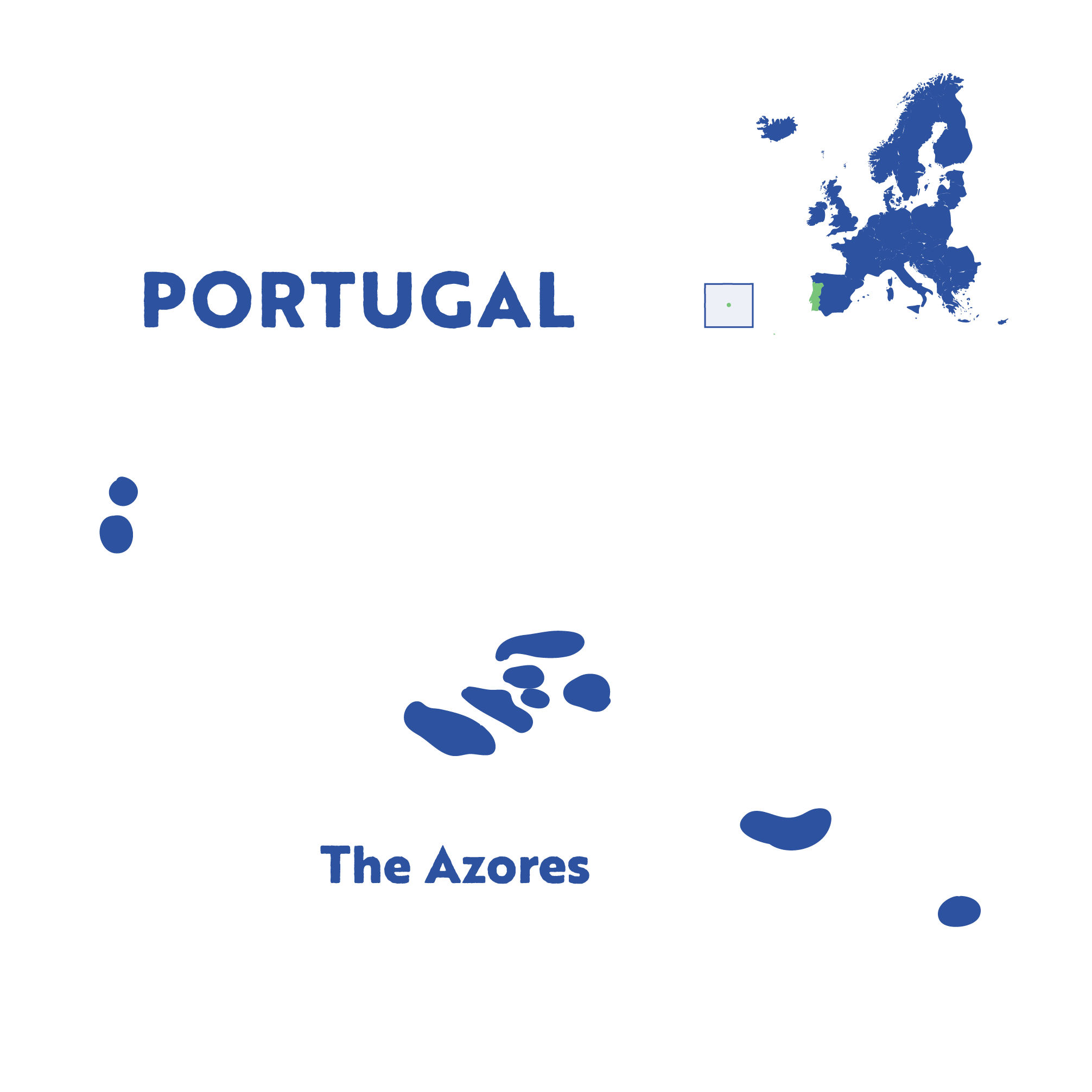REGIONs4CLIMATE / Resilient Regions / Azores
Challenges and solutions
The economy of the Azores has historically been supported by agriculture in the form of cattle raising and fisheries. In the last decade, the increase in tourism resulted in significant growth in the island’s population during the summer months. This raises the pressure on natural resources and threatens the existing balance of land use, biodiversity conservation, water usage and other environmental concerns.
Furthermore, coastal erosion threatens the homes of coastal residents and creates competition in finding a suitable place to live. There is a need for solutions for adaptive management, as well as public awareness and participation in environmental management.
Livestock in the Azores.
Source: SIARAM
Azores has committed to

Improving climate literacy of citizens and stakeholders through an Azorean Footprint app

Creating a digital coastal vulnerability map to support decision-making processes
Several innovative actions
Social
Empowering communities to actively participate in shaping regional policies on climate change and resilience.
Raising stakeholders’ and citizens’ awareness of risks and improving their understanding of climate change.
Coastal erosion in Fenais da Luz.
Source: SIARAM
Environmental
Developing digitalisation in decision-making processes through data collection and adapting the Coastal Vulnerability Index (CVI). This will allow real-time monitoring and decision-making.
Coastal erosion in Porto Vila Nova.
Source: DRAAC (Direção Regional do Ambiente e Alterações Climáticas)
Economic
Identifying critical stressors and sectoral development issues using the nexus approach (understanding synergies of coastal erosion threats, land use planning, biodiversity, and agricultural policies), and initiating adaptation planning as a natural path for regional planning instruments and specific environmental management tools.
Monte Brasil, Terceira.
Source: DRT (Direção Regional do Turismo)
Policy and governance
Implementing novel digital tools to facilitate decision-making processes.
Actively engaging citizens and other stakeholders in the decision-making and governing processes.
Hiking on Pico Island, one of the many natural tourism sites in the Azores.
Source: DRT (Direção Regional do Turismo)
Faster Adaptation Challenge Suite
The Azores are part of the Faster Adaptation Challenge Suite, whose frontrunner region is the Basque Country. The challenge suite recognises the need for innovation and Faster Adaptation to combat climate change and reduce climate-related risks while safeguarding coastal ecosystem integrity.
Through these proposed demonstrations of innovation actions, the Azores are well on their way to becoming a leading example of climate resilience in Europe.
In the press
28/10/2024
Entidades expertas en dinámica costera visitan Txingudi para conocer la futura intervención en la laguna de San Lorenzo, en el marco de la Misión de Adaptación al Cambio Climático, el proyecto Regions4Climate y la Red Natura 2000, de la UE
Discover the other regions in the
Faster Adaptation Challenge Suite
All Regions4Climate regions




